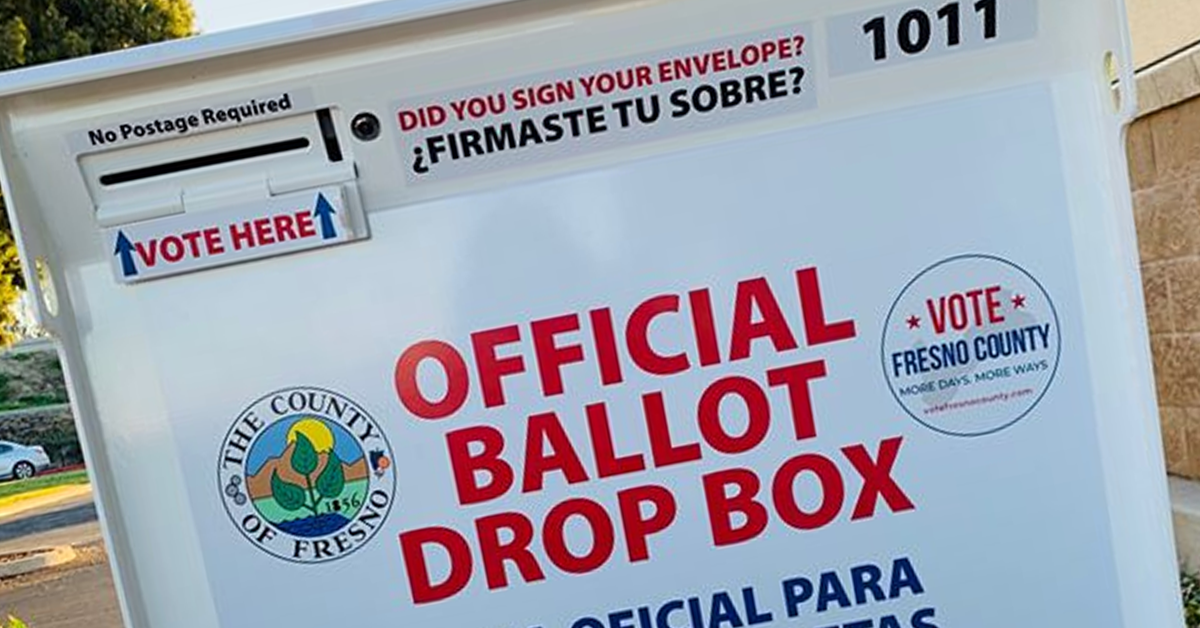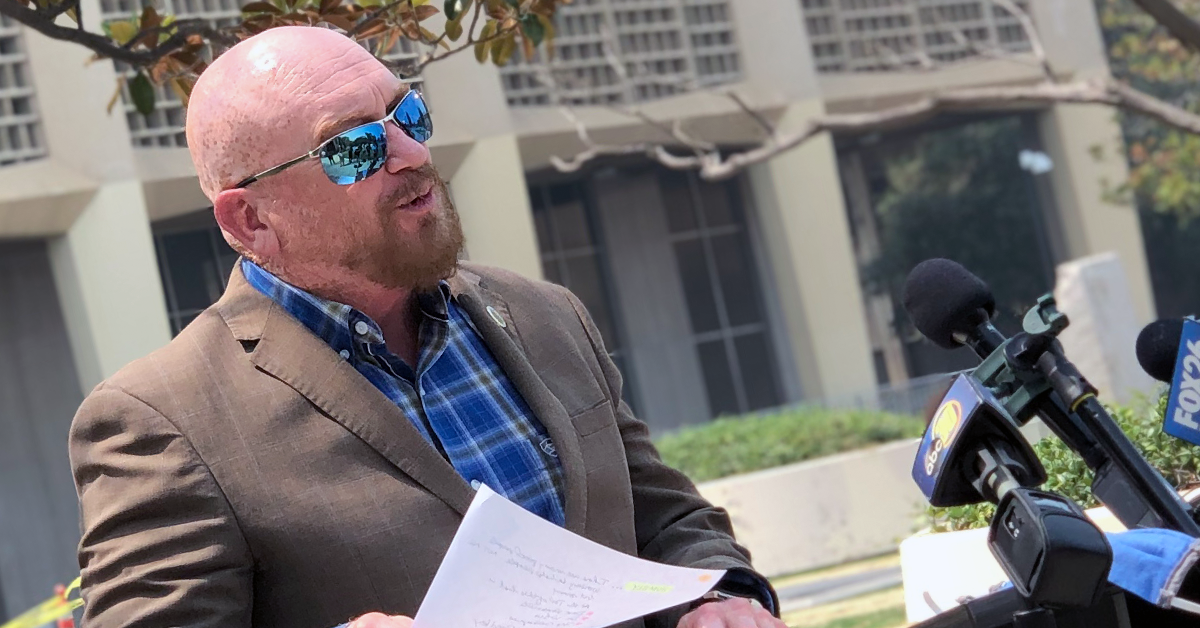You might think it would be the most basic alliance of all in a civilized nation: Duly constituted law enforcement agencies working together to enforce the people’s law.
Think again.
I’m referring to the growing controversy over whether America’s police departments and sheriff’s offices should cooperate with officials from the U.S. Immigration and Customs Enforcement agency – ICE (a part of the Department of Homeland Security).
I spoke recently with Fresno Police Chief Jerry Dyer and Fresno County Sheriff Margaret Mims about the level of teamwork between their respective departments and ICE.
“If they (ICE agents) call us and they need assistance, where they feel their safety is in danger, we’re going to respond immediately,” Dyer said. “But we won’t go out on any type of sweeps to look for people that are in violation of their immigration status. That’s not what our role is. That’s what their role is. I do know the federal government is very concerned about the level of cooperation across the nation. And rightfully so.”
Mims is fully aware of the efforts by U.S. Attorney General Jeff Sessions to ensure that ICE agents aren’t thwarted in the course of their job by local law enforcement.
“What the (U.S.) Attorney General is saying, ‘We want to help you keep your community safe, but you have to be willing to cooperate,’” Mims said. “What we’re saying back is: ‘We want to cooperate – most sheriffs do – we want to cooperate with ICE. We want to be able to be able to call you. But, we’re stuck in the middle between state law and what the federal government wants to do.’
“That’s our conundrum.”
I had two reasons for contacting Dyer and Mims.
First, the feds’ Justice Department over the summer ramped up the pressure on sanctuary cities across America. In particular, the feds warned certain cities that their failure to treat ICE fairly could mean the end of a specific federal law enforcement grant coming their way.
In other words, if you don’t play right, you won’t get paid.
The specific grant in question – the Edward Byrne Memorial Justice Assistance Grant program – may be relatively modest in scale. But Sessions’ main goal was to send a message: The feds give a lot of free money through all sorts of channels to municipalities; today it’s the Byrne grant, tomorrow it’s real dough.
For example, the feds’ Alan Hanson, acting assistant attorney general, sent a letter dated August 3 to Eric Jones, chief of the Stockton Police Department.
Hanson said Byrne grants go to agencies that play ball with the federal government. For Stockton to be eligible for the money, Hanson said, the city must correctly answer three questions:
1.) “Does your jurisdiction have a statue, rule, regulation, policy or practice that is designed to ensure that U.S. Department of Homeland Security (‘DHS’) personnel have access to any correctional or detention facility in order to meet with an alien (or an individual believed to be an alien) and inquire as to his or her right to be or to remain in the United States?”
2.) “Does your jurisdiction have a statue, rule, regulation, policy, or practice that is designed to ensure that your correctional and detention facilities provide at least 48 hours’ advance notice, where possible, to DHS regarding the scheduled release date and time of an alien in the jurisdiction’s custody when DHS requests such notice in order to take custody of the alien?”
3.) “Does your jurisdiction have a statue, rule, regulation, policy, or practice that is designed to ensure that your correctional and detention facilities will honor a written request from DHS to hold a foreign national for up to 48 hours beyond the scheduled release date, in order to permit DHS to take custody of the foreign national?”
Those are frank questions with a possible bearing on future Fresno City Hall and Fresno County policy.
My second reason for reaching out to the Chief and the Sheriff was SB 54 – the bill aimed at turning California from Crescent City to San Diego into a sanctuary state. SB 54 was merely a proposed law at the time of my interviews. Governor Jerry Brown signed SB 54 into law on Thursday.
Now everyone in California is facing that conundrum.
“It’s not an issue for us because we do cooperate with our federal agencies, whether it’s ATF, DEA, Homeland Security investigations,” Dyer said. “And we even cooperate with ICE when we are dealing with individuals that are involved in criminal behavior. If we know that there’s a gang member that’s out there that’s involved in violent crime, there’s going to be a coordinated effort with ICE to address that individual.
“But what we don’t do as an agency is we don’t have our officers inquire about a person’s immigration status. That’s prohibited by our policy. I don’t want our officers out there being focused on immigration issues. I want them focused on crime issues. However, that doesn’t mean we don’t cooperate with ICE.”
Dyer noted that the Sheriff’s Office is in charge of the local jail.
I gave the Chief a hypothetical situation. ICE comes to PD with a list of 35 names. ICE says it’s looking for those individuals. ICE asks that it get a phone call should PD arrest one of them.
“That’s not what we’re going to do,” Dyer said. “That’s not what we’ve done. We’re not going to be an agent of ICE. However, if they said, ‘This individual is in the country illegally, and we know he is wanted for murder or rape or robbery out of (for example) Ventura County,’ then certainly we’re going to be looking for that individual because they’re involved in a violent crime.”
The issue is more complex and frustrating for the Sheriff – the jail is part of her domain.
Big cities on, say, the East Coast generally run their own jails. In California, Mims said, jails usually belong to the county.
“This is where some of the controversy steps in and some legal challenges, quite frankly,” Mims said.
They key is issue is “due process” the U.S. Constitutional guarantee that a person’s journey through the judicial system will be based on the law, not the arbitrary wishes of government agents.
“People who are here illegally – the Constitution applies to them,” Mims said. “Which means for everybody I hold in jail I need the statutory authority to hold them there. Once somebody can bail, once they’re OR’d (released on their own recognizance) by the courts or their charges are dropped or they’ve finished their sentence, my authority to hold them ends. It doesn’t matter what ICE says.
“For instance, in the old days they (immigration agents) would say, ‘can you hold them 48 hours to give us time to come and get them?’ The answer is ‘no, we can’t’ because it violates the Constitution, because of due process. That’s why I invited ICE to come into our jail. I said, ‘If you come into the jail and you’re able to do your job, you will know who is coming in, who is going out. If you want to take somebody into custody, you can do that right there. There are no phone calls that have to be made. It allows you to do your job and it allows me to keep the community safe.’
“The problem with that is the ‘open border’ groups and the ACLU challenged that.”
An ever-growing list of state laws regarding immigrants and ICE “further handcuffs sheriffs,” Mims said. “I have to follow state law. They (the feds) have no jurisdiction.”
An ICE agent wondering if a someone of interest is in the Fresno County jail now has no recourse other than to surf the jail website, where bookings and releases are posted.
“For sentenced inmates, it’s a little bit easier because we know a release date,” Mims said. “But, remember, 70% of the local jail – and we’re not any different than the other jails – are people waiting for some kind of trial. They’re in standby mode. So, they’re eligible to bail out. They’re eligible for a pre-trial program. The nature of a local jail, which is very different than a state prison, is the constant turnover. People will sometimes use ‘revolving door’ as a derogatory term. But that’s what a local jail is. People come in and people go out.”
I interviewed the Sheriff in late September. The “sanctuary state” bill was on Brown’s desk at the time. Mims expected him to sign it.
SB 54 is named the California Values Act. Brown in his written signing statement on Thursday said: “This bill states that local authorities will not ask about immigration status during routine interactions. It also bans unconstitutional detainer requests and prohibits the commandeering of local officials to do the work of immigration agents. The bill further directs our Attorney General to promulgate model policies for local and state health, education, labor and judiciary officials to follow when they deal with immigration matters.”
Three thousand miles away, Attorney General Sessions wonders about the future of an America where lawmakers and law enforcement agencies further down the federalist food chain can selectively decide “it’s not my job” when it comes to enforcing the law.
“I want to cooperate with ICE,” Mims said. “The laws that California is enacting prohibit us from communicating with a federal law enforcement agency (ICE). What’s next? Are we not going to be able to talk with the FBI? What about ATF? What about DEA? Where does it stop? It does not make any sense whatsoever. It’s nothing about public safety. It’s all about the atmosphere in California for immigrants.
“My job for nearly 38 years now is: ‘How do I keep you safe?’ I’m not anti-immigrant. I’m anti-criminal.”







